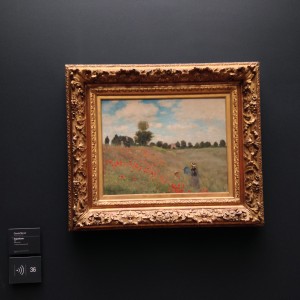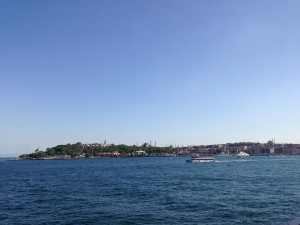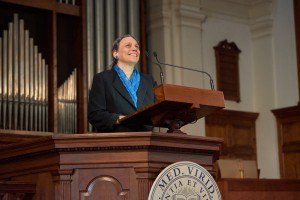Back in high school, I ran cross country and track. I was a distance runner, most of the time running the 2-mile or the 5000m. Having spent a large amount of time in the racing realm, I picked up a lot of the lingo. One of the classic coaching phrases for distance racing has to do with the end of the race. Typically, as I neared the finish line or turned into the last lap on the track, I would hear my cross country or track coach belting, “Don’t let up!” or some other phrase guaranteed to make runners like me sprint to the finish.
I have been thinking about this advice a lot lately, as the final month of my time at Middlebury nears. In some ways, I’ve been approaching these last few weeks with the opposite perspective. Knowing that I’m going to leave Middlebury in a matter of weeks gives a different perspective to the final days of class and even the upcoming exams.
The last issue of the newspaper comes out next week and it’s hard to believe that there won’t be another afterward. Despite the work required to produce the weekly newspaper, I’m already feeling nostalgic for editing sessions, article drafts, and working with the fantastic team we have assembled in the newsroom. Normally, I’m excited to see the paper on dining hall tables on Thursday. However, the knowledge that it is the last set of articles and stories makes me practically want to delay this week’s publication!
The same applies to classes. I thought I might be counting down the days until commencement, and I am — but not in the sense that I want to be finished. In every class, I find myself relishing the ability to explore different topics or to discuss with the professor and a group of talented peers. It is all the more bittersweet knowing that these opportunities might not come around again for a while.
Even the upcoming exams don’t seem like a hurdle to get over but, rather, the last chance that I’ll have to show what I’ve learned.
I was recently reading the statistics for the newly admitted class of Middlebury students and could not be more excited for them. They are about to embark on a new adventure. If they are anything like I was in May 2011, they may not anticipate the opportunities and encounters at Middlebury that will change them in immeasurable ways.
In any case, I think there is something to be said for not sprinting to the finish line. I am positive that I will look back on these last few weeks with fondness, just as I know I am going to reminisce on my time at Middlebury overall. With that in mind, I definitely won’t be leaning into the turn to the finish line of what can sometimes seem like a race. Rather, I am just enjoying one last run.



